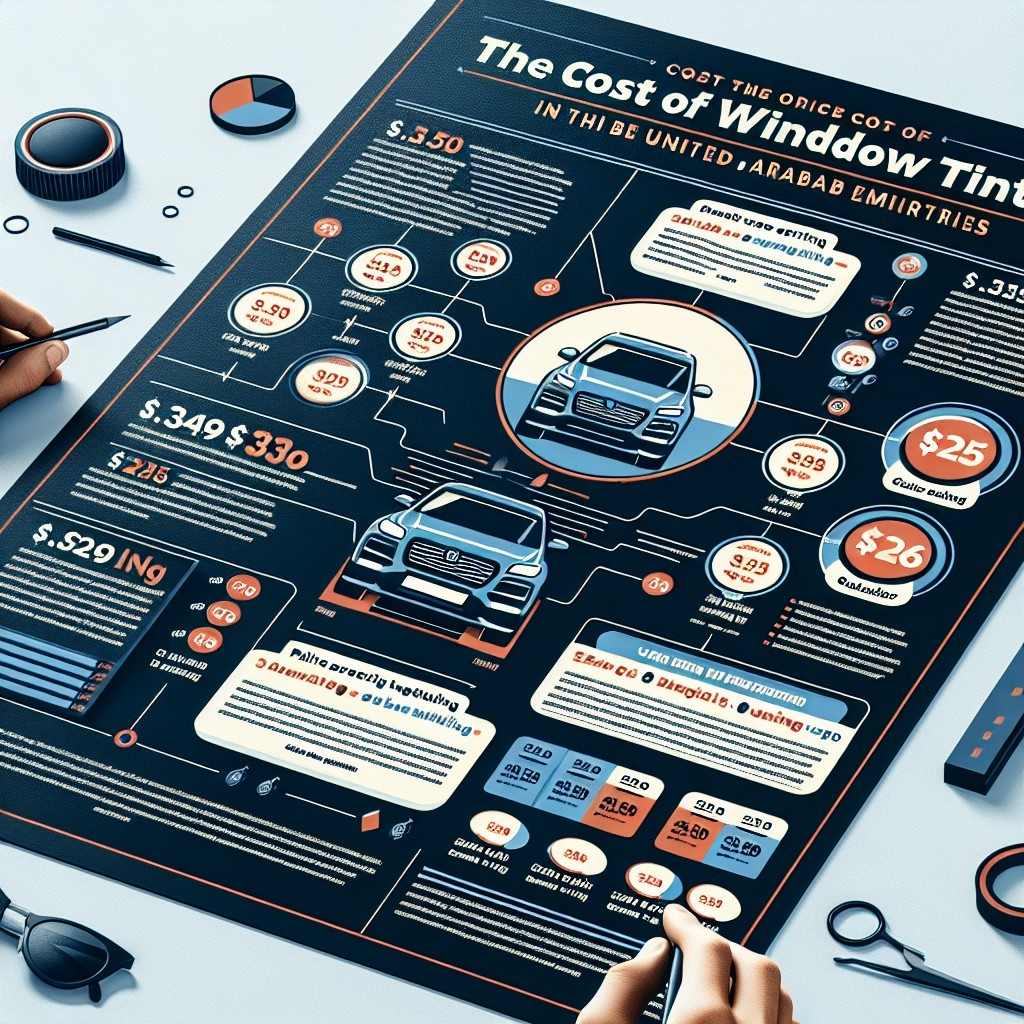As the sun blares down relentlessly over the United Arab Emirates, car owners are often left grappling with the decision on how to best protect their vehicles from the intense heat․ With temperatures soaring above 50 degrees Celsius during the summer months, the question arises: is factory tint enough to shield your vehicle from the searing rays? Experts weigh in, and the consensus seems to be a resounding no․

The Basics of Factory Tint
Most new vehicles come equipped with factory-installed window tint that is designed to offer some level of UV protection and heat rejection․ Typically, this tint is applied to the glass during the manufacturing process and adheres to the legal standards set by various countries․ In the UAE, the legal limit for tinted windows can vary, but many factory tints only provide a basic level of protection․
Why Factory Tint Falls Short
- Limited UV Protection: While factory tints can block a portion of harmful UV rays, they may not be sufficient to prevent skin damage and fading of the car’s interior over time․
- Inadequate Heat Rejection: The factory tint typically allows a significant amount of heat to enter the vehicle, making the interior uncomfortably hot during peak summer days․
- Durability Issues: Factory tints can be more prone to scratching and peeling compared to high-quality aftermarket films, which can compromise their effectiveness over time․
Expert Opinions
Automotive experts and tint specialists emphasize the importance of upgrading from factory tint to a higher-quality aftermarket film․ “In the UAE, where we experience extreme temperatures, standard factory tint just doesn’t cut it,” says Ahmed Al-Fahim, a local tinting expert․ “Investing in a premium tint can significantly enhance your comfort and protect your vehicle’s interior․”
Moreover, the advantages of aftermarket tints extend beyond mere aesthetics․ They can offer:
- Enhanced Heat Rejection: High-performance films can block up to 99% of UV rays and provide superior heat rejection, keeping your car cooler․
- Improved Privacy: Aftermarket tints come in various shades and levels of opacity, allowing for greater customization in terms of privacy and style;
- Increased Safety: Quality films can hold shattered glass together during accidents, reducing the risk of injury from broken shards․
Legal Considerations
Car owners must also navigate the legal aspects of window tinting in the UAE․ The law specifies the permissible light transmission levels for different windows․ While factory tints often comply with these regulations, darker aftermarket options may require additional permits․ It’s crucial to check local laws to avoid fines and ensure compliance․
So, before you hit the road in that blazing sun, consider the protection your vehicle truly deserves․ The heat is unforgiving, but with the right tint, you can make your driving experience a lot cooler․


I found this article to be eye-opening! The details about UV protection and heat rejection really made me rethink my car’s window tinting situation.
I appreciate the expert opinions shared in this piece. It’s clear that investing in aftermarket tints is worth it for those of us living in such hot climates. Great read!
Great article! It’s essential for everyone in the UAE to understand how important proper window tinting is. Thanks for sharing this valuable information!
Fantastic insights! The breakdown of the limitations of factory tint versus aftermarket options was very helpful. I’m convinced I need to make a change!
This article is incredibly informative! I had no idea that factory tint was so limited in its protection. Definitely considering upgrading my car’s tint now!